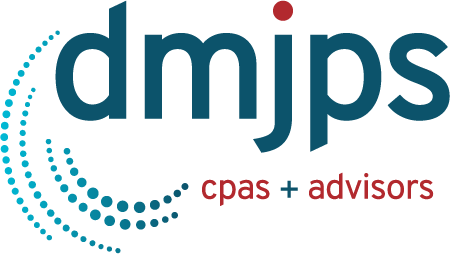The 2025 Tax Act, commonly known as the One Big Beautiful Bill (OBBB), reinstated expensing of research and experimentation or development (R&D) costs. For the last three years, all taxpayers have been required to capitalize domestic R&D costs and amortize them over five years. Under OBBB, the ability to expense these costs is generally effective for tax years beginning in 2025. However, “small taxpayers” are allowed to apply the change retroactively to 2022. Small taxpayers are defined as taxpayers that meet the § 448(c) gross receipts test for their first taxable year beginning after December 31, 2024. This means gross receipts for 2022, 2023, and 2024 must average $31 million or less.
You can READ MORE from the DMJPS summary of OBBB provisions HERE.
On August 28, the IRS released Revenue Procedure 2025-28. In addition to addressing the OBBB changes made to R&D costs for all affected taxpayers, it spells out procedures for the small taxpayer relief. For many, the most pressing question requiring IRS guidance was for small taxpayers interested in taking advantage of the transition rule on their 2024 tax return, currently on extension.
The text of OBBB indicated that expensing these costs for years prior to 2025 could only be done via an amended tax return. Yet, it seemed unreasonable to require taxpayers who have not yet filed their 2024 return to capitalize costs and then amend that return to expense those same costs.
Key takeaways for clients over the 2022–2024 tax years, who are eligible and choose the option to apply the changes to 2022-2024 returns, include:
- Small taxpayer relief on 2024 returns – Revenue Procedure 2025-28 allows small taxpayers to expense R&D costs directly on their original 2024 return instead of filing and later amending, providing faster tax savings and greater efficiency.
- Mandatory retroactive application – Electing to expense R&D costs on the 2024 return requires taxpayers also to amend their 2022 and 2023 returns (or file an AAR for certain partnerships), which can be time-consuming and should be weighed against expected tax rates in 2025–2026.
New opportunities with R&D credits – The Revenue Procedure permits late Section 280C(c)(2) elections, which could previously could only be made on original returns. With expensing reinstated, this election could now benefit many taxpayers.
This Revenue Procedure allows small taxpayers to expense R&D costs on an original 2024 tax return. This will be more efficient and enable taxpayers to realize the tax savings more quickly. There are some important things to consider if a small taxpayer wants to elect to deduct R&D costs on their original 2024 return:
- By making this election, the taxpayer is also committing to changing the treatment for 2022 and 2023. In fact, the 2024 return must include a statement indicating that the taxpayer will amend their 2022 and 2023 returns for this change.
- Taxpayers should ensure that applying the changes retroactively is in their best interest. Considerations include the effective tax rate for the years 2022 through 2024 versus the anticipated rate for 2025 and 2026, and the amount of time it may take to receive the associated benefit or refunds. Amended returns typically take at least six to nine months to process.
- A deduction should not be claimed on the 2024 return for the amortization of costs capitalized in 2022 and 2023. Those will be deducted when amending 2022 and 2023 returns.
- The owners of pass-through entities (S corporations, LLCs, and partnerships) will also have to amend their tax returns. Also, certain partnerships cannot amend their tax returns but must instead file an administrative adjustment request (AAR), a more involved process than amending.
- States like North Carolina have not yet updated their laws to address the effects of OBBB. Until such laws are updated, if deductions are claimed for the R&D costs on the 2022 through 2024 returns, an adjustment will need to be made on the state returns to conform to the pre-OBBB law.
The Revenue Procedure also addresses the ability to make a late Section 280C(c)(2) election for the R&D credit, along with required disclosures. Prior to OBBB, this election could only be made on an original return. When capitalization of R&D costs was required, this election was often not advantageous. Now that expensing is permitted, it’s worth revisiting this.
Should a taxpayer decide to deduct its R&D costs on its 2022, 2023, and 2024 tax returns, an election must be made by attaching a statement to the original or amended return (or AAR). The statement must be titled “FILED PURSUANT TO SECTION 3.03 OF REV. PROC. 2025-28” and include the following:
- Name and taxpayer identification number.
- A declaration that the taxpayer is not a tax shelter for its first taxable year beginning after December 31, 2024.
- A declaration that the taxpayer meets the § 448(c) gross receipts test (“small taxpayer”) for its first taxable year beginning after December 31, 2024. This means that gross receipts for the years 2022, 2023, and 2024 must average $31 million or less.
- A statement indicating that the taxpayer elects to deduct expenditures under §174A(c).
- A declaration that the taxpayer will file an AAR or amended return for any applicable taxable year(s) for which a return was filed before September 15, 2025, if domestic R&D expenditures were paid or incurred in those years.
Many details are contained in the Revenue Procedure, and it should be considered carefully. Please don’t hesitate to reach out if you’d like to discuss how this guidance might affect you. Our team is here to support you.

